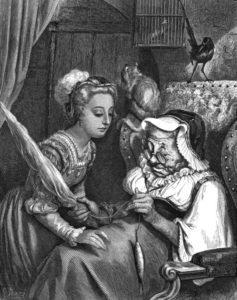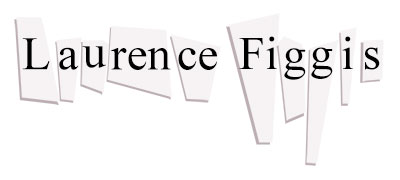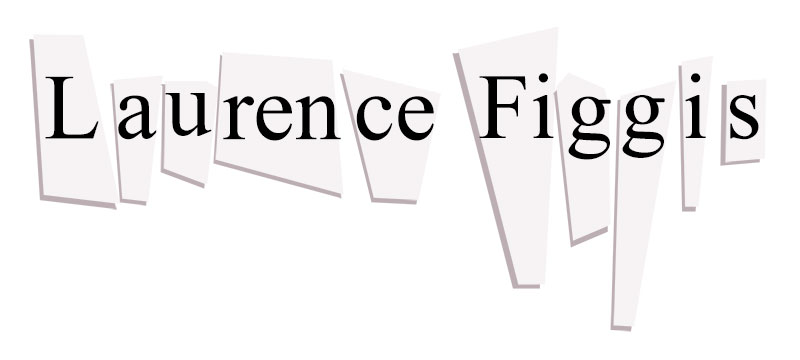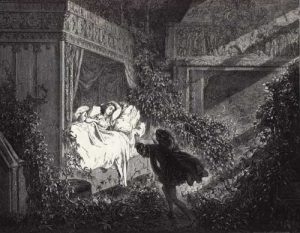Feb 07
2025‘The Sleeping Beauty in the Woods’: A Surrealist Awakening

Gustave Doré, Illustration for Charles Perrault’s ‘La Belle au Bois Dormant’ in Les Contes de Perrault (one of six engravings), 1867.
I am a painter and writer who has lived in Glasgow for more than twenty-five years. My ongoing interest in fairy tales and Surrealism has been nourished by that context—notably through dialogue with the Scottish writer and art historian, Catriona McAra, whom you heard speak today and who has written extensively on these subjects. As McAra has shown, through her perceptive analysis of the work of Dorothea Tanning and Leonora Carrington, the ‘surrealist fairy tale’ is a hybrid genre that subverts the reader’s (or the viewer’s) expectations, bringing about a contradictory relation of ‘text’ and ‘image’.
In the summer of 2024, I began making a series of 26 illustrations to Charles Perrault’s ‘La Belle au Bois Dormant’ the frequently censored baroque version of the story more commonly known as ‘Sleeping Beauty’ (first published in 1697).
Intended for both an exhibition and an artist book, these works stage a material encounter of surrealist aesthetics and the literary fairy tale. Taking the form of watercolour paintings derived from 1980s-era magazine-pages and film-stills, these images are counterpoised to a well-known story. Read more →


